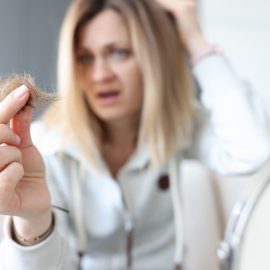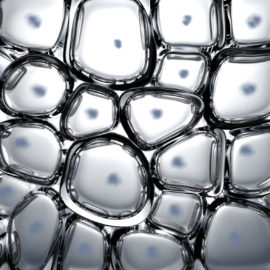Hair loss concerns are at the centre of new consumer trends surrounding hair care and general wellbeing as a whole.
Nowadays, attitudes surrounding health as a holistic concept and hair care in particular are varied, although it can be argued that these concerns have been greatly impacted by COVID-19 and its repercussions.
In a post-pandemic environment, the different points of view regarding health go from hardcore “health-seekers” to varying degrees of attitudes towards health:
- While 26% of people reported exercising more compared to before the COVID-19 outbreak, most continue to hold an “everything in moderation” attitude towards their health.
- Health is increasingly understood as a holistic concept, where mental health and its link to physical processes is at the forefront. At a time when anxiety, lack of sleep and stress are at its highest, consumers are avid to find solutions that help them improve their energy levels and their mood.
This context highlights the importance of segmenting consumers according to their needs and points of view. Through this process, brands can detect trends and respond accordingly.
Such is the case of new hair loss concerns, which are increasingly linked to scalp issues and skin barrier boosting. We analyse what are the main attitudes towards hair loss today and what this means for brands.
Content
Hair loss and the link with skin barrier: a new narrative opportunity
From increasing hair thickness to anti-frizz treatments, consumers are understanding the value of natural, holistic solutions for hair care. Hair loss concerns are no different, and this issue is increasingly linked with maintaining a healthy and strong skin barrier that helps improve hair quality and therefore decrease hair loss.
In fact, while hair aesthetics still play a significant role, consumers are increasingly inclined to be interested in hair health as it also translates into hair quality and quantity.
Today, hair loss and hair growth issues are understood as a concern for both men and women. This presents a unique opportunity for brands which, following the diverse attitudes towards health delineated above, may respond with different strategies and narratives:
- Companies must present solutions that go beyond mere hair loss issues and target overall hair health, as consumers understand the link between scalp health and hair health. In fact, to grab consumers’ attention, brand narratives can emphasize how hair health is not simply an aesthetic issue, but explain how it might be related to wider health problems such as stress.
- Brands should open their target groups and go beyond traditional male balding consumers. Women and young people suffering from hair loss are also interested in such products, provided they’re offered items which respond to their particular concerns.
- Products that target scalp health, including sun protectors and anti-pollution treatments, are on the rise. Scalp health understands this tissue as an extension of skin care, while also being an essential element for strong hair follicles to develop.
- Natural and sustainable ingredients are preferred, with natural and organic skincare certifications growing as a result.
Soybean oil: the antidote for hair loss
Soybean oil emerges as the natural-origin antidote for hair loss that consumers are demanding.
This oil works as an emollient agent for cosmetic formulations and is aimed at body or hair treatments. It recovers the skin barrier function, while also working with sensitive and/or irritated skin. Its unique properties allow for the generation of efficient anti-hair loss solutions, while also creating protection against oxidative processes in skin and hair. At the same time, it protects skin from UV radiation-induced oxidative effects.
Incorporated into hair care treatments, this natural ingredient provides the “healthy fats” (polyunsaturated fatty acids) and necessary lipids that generate a healthy skin barrier, which also translates into a healthy scalp.
Numerous scientific studies back this claim:
- It has been shown that polyunsaturated fatty acids (PUFAs) are useful for cosmetics because of their ability to recover the skin barrier function (Härtel B, 1996).
- The effects of polyunsaturated fatty acids on the hair metabolic functions are also known to contribute to ahir growth. And using local applications of polyunsaturated fatty acids can help restore these altered functions to normal (Skolnik et al. 1977).
At the same time, Provital’s soybean oil extract is 100% natural origin, certified by ISO 16128-Natural Origin, which contributes to making this extract a solution aligned with consumers demanding hair loss treatments that are natural, familiar (including food-related ingredients) and thus perceived as safe.
Brak komentarzy
Nie ma jeszcze żadnych komentarzy na temat tego postu.





Zostaw komentarz